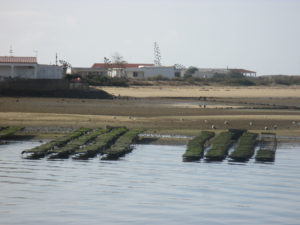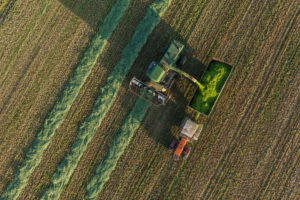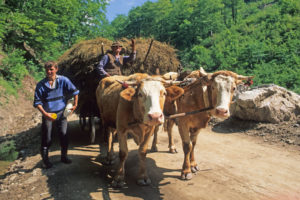The first three of these reports were published recently: Portugal, Romania and Poland. Another three are to be released later this year, on the Baltic states Estonia, Latvia and Lithuania. More reports may follow in coming years, subject to successful financing.
‘The other countries will be selected by the members of the consortium with the best project proposal for this theme in the 2018 call,’ says Nelo Emerencia, who is responsible on behalf of the BIC for the production of the reports, together with an external consultant. ‘We have not set any criteria, but assume that they are capable themselves of assessing the potential of a particular country for setting up a biobased industry. The availability of useful information in a common European language also plays a part.’
Willingness to innovate
In reality we see that scores for biobased activities are generally low in countries that have mediocre or low scores on the ‘European innovation scoreboard’. Emerencia: ‘This is no surprise, as biobased industry is very strongly linked to the willingness to innovate and break through the barriers between the sectors – which are often conservative.’
That willingness is certainly present in Poland, for example: a large country with a huge range of agriculture and a willing government. Romania was also a suitable candidate with its strong agricultural sector, and because this country will take over the chair of the Council of Europe on 1 January 2019. The odd one out, however, is Portugal. ‘Among our members we have only a single small, industrial enterprise and one research centre from Portugal. And yet there are three Portuguese members in our scientific committee and we know that the universities in that country are running many activities. What is going on there?’
To find out, discussions are being held locally with a number of the key actors in every sector. ‘We do not claim that our report is in a final, definitive and closed state. We are not taking any position or telling anybody what they have to do. What we are doing is just looking at the situation from a European industrial perspective: what are the sectors in a country with potential for setting up a national, biobased industry which can then link up on a European scale?’
What stands out with Portugal are its strong points of agriculture, forestry, fishing and the fish-processing industry. And unique for Europe, the eucalyptus trees, for instance. Not as well-known are the huge cork plantations, with the accompanying cork-processing industry. ‘But the separate sectors are scarcely aware of each other. There is no interconnection, and that is precisely the key point in a biobased industry: connecting partners which have traditionally never been partners before.’
Connections with Europe
That information is the starting point for breaking down barriers and laying down the foundations of a national biobased industry. An action plan needs to be made to that end. Emerencia: ‘We are ready and waiting to make connections with Europe. And that is necessary too, since all the things that are happening in Portugal, for instance in marine and aquatic technology and biotechnology, are as good as unknown in the rest of Europe. There is a mutual need to make that connection.’
Setting up a national biobased economy strategy which creates a connection with the government has not succeeded yet in any of the three countries investigated. The European Commission wants to provide incentive for this, and is enthusiastic about BIC’s country initiative. ‘This fits in perfectly with the vision of the Juncker Plan: “Fostering Inclusive Growth.” The objective of this plan is to promote investment throughout the whole of Europe, with the aim of creating greater prosperity from which everybody can benefit. The country reports are just the start.’
This article was made in cooperation with Bio-Based Industries Consortium







